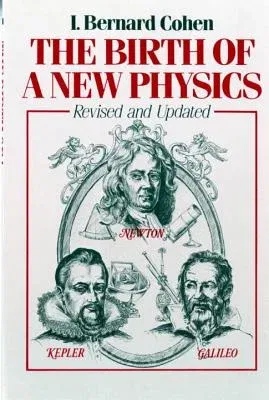I Bernard Cohen
(Author)The Birth of a New Physics (Revised and Updated)Paperback - Revised and Updated, 17 August 1985

Qty
1
Turbo
Ships in 2 - 3 days
In Stock
Free Delivery
Cash on Delivery
15 Days
Free Returns
Secure Checkout

Print Length
272 pages
Language
English
Publisher
W. W. Norton & Company
Date Published
17 Aug 1985
ISBN-10
0393300455
ISBN-13
9780393300451
Description
Product Details
Author:
Book Edition:
Revised and Updated
Book Format:
Paperback
Country of Origin:
US
Date Published:
17 August 1985
Dimensions:
21.16 x
13.72 x
1.7 cm
ISBN-10:
0393300455
ISBN-13:
9780393300451
Language:
English
Pages:
272
Publisher:
Weight:
226.8 gm